




| Paulo Mavungo Buassa Bachelor of Science Mechanical Engineering Angola |
Dante Mauricio Fontana Laplagne Bachelor of Science System Engineering Argentina |
Joaquín Antonio Llera Giménez Master of Science Applied Statistics Argentina |
Motsumi Phillip Modise Bachelor of Occupa tional Hygiene Occupational Hygiene Botswana |
Wilson Roberto Vicente Míccoli Post Doctorate of Management Project Management Brazil |
Balasingham Arasabalan Doctor of Philosop hy Clinical Psychology Canada |
| Joakem Tazanu Fossung Doctor of Science Public Health and Medical Informatics Canada |
Dixsiana del Pilar Ordóñez Osorio Bachelor of Science Physiotherapy and Kinesiology Chile |
Ari Enrique Fajardo Forero Doctor of Education Education Colombia |
Nelson Miguel Mejías Alvarez Doctor of Science Public Health Colombia |
Mubawa Bake Jonas Doctor of Economics and Business Project Management Democratic Republic of the Congo |
Edgar Antonio Cuevas Santana Bachelor of Engineering Electromechanical Engineering Dominican Republic |
| Ana Cecilia Silverio Ramos Doctor of Science Nutrition Dominican Republic |
Omar Antonelly Sosa Marte Bachelor of Science Psychology Dominican Republic |
António Febu da Silva Bachelor of Communications Communications East Timor |
Rosa Mercedes Velastegui Larcos Bachelor of Linguistics Linguistics Ecuador |
Alemania María Macías Silva Bachelor of Psychology Educational Psychology Ecuador |
Awa Keita Bachelor of Business Administration Business Management Gambia |
| Winfred Asare-Nyarko Doctor of Business Administration Business Administration Ghana |
Esther Ama Hagan Bachelor of Education Education Ghana |
Ever Rene Caballero Zuniga Doctor of Finance Finance Honduras |
Raashid Ashraf Khan Doctor of Business Management Business Management India |
Omer Nirhod Doctor of Philosop hy International Legal Studies Israel |
Navit Shahar Nirhod Master of Science Forensic Psychology Israel |
| Jermaine Kwesi Elliott Bachelor of Science Business Management Jamaica |
Dwayne McKay Doctor of Engineering Mechanical Engineering Jamaica |
Percival Stewart Doctor of Science Waste Water Management Jamaica |
Ibrahim Michel Ibrahim Doctor of Philosop hy Environmental Engineering Leba non |
Dembélé, Founéfing Master of Business Administration Project Management Mali |
Florentino Fernández Guzmán Doctor of Strategic Planning and Mgmt. Strategic Planning and Management Mexico |
| Roda Sansão Nuvunga Luís Doctor of Science Food Science Mozambique |
Christine M. Baez-Banks Master of Business Administration Business Management Nepa l |
Edwin Chiejine Ogwu Doctor of Philosop hy Human Resources Management Nigeria |
Attoh, Uchechukwukah Doctor of Philosop hy Organizational Leadership Nigeria |
Aguleke Andy Bachelor of Science Project Management Nigeria |
Maria Teresa Reátegui Arosemena Bachelor of Education Early Childhood Education Panama |
| Shane Farray Master of Science Mechanical Engineering Saint Lucia |
André Van Dyk Bachelor of Business and Economics Banking and Finance South Africa |
Francisco X. Muñoz Díaz-Castroverde Bachelor of International Business International Business Spa in |
Qinisizwe A. Nxumalo Bachelor of Science Information Technology Swaziland |
Philbert Boniphas Nyangwe Bachelor of Science Civil Engineering Tanzania |
Cosimo Di Maggio Bachelor of Architecture Bioclimatic Sustainable Architecture Trinidad and Toba go |
| Jennifer Elizabeth Cudjoe-Brathwaite Doctor of Philosop hy Management Trinidad and Toba go |
Yunus Emre Battal Bachelor of Business Management Management Türkiye |
Allen Uhiriwe Doctor of Gender and Dev. Studies Gender and Development Studies Uganda |
Musinguzi Richard Bachelor of Business and Economics Leadership and Management Uganda |
Ajayi Abayomi Patrick Master of Science Business Management United Kingdom |
Justin Bisimwa Mudekereza Doctor of Project Management Project Management USA |
| Nene Nakotey Hervie Doctor of Arts English Language USA |
Professor Mounir Joudeh Doctor of Philosop hy Auditing USA |
Isis Mairobel Pena Espinal Bachelor of Science Psychology USA |
Jane Kaboko Bachelor of Management Purchasing and Supply Management Zambia |
Jokwiro Juliet Doctor of Science Public Health and Epidemiology Zimbabwe |

 Paul Osayimwense Omoruyi
Paul Osayimwense Omoruyi Shameena Haniff-Najab
Shameena Haniff-Najab Ibrahim Aderemi Adebayo
Ibrahim Aderemi Adebayo Matthew Lowe
Matthew Lowe
We listen and listen to talk
about Artificial Intelligence
(AI), that if it’s good, that
if we will be left without a job.
First of all, we have to know:
what it’s and what is in it?
Artificial Intelligence is a
component of Computer Science
that emerged in 1956 in
the practices of four American
researchers: John McCarthy,
Marvin Minsky, Nathaniel
Rochester and Claude Shannon,
at Dartmouth College, in the
United States.
What does Artificial Intelligence
do: The objective of
Artificial Intelligence is the
simulation with machines of
the faculties of animal, human,
social, plant and phylogenetic
intelligence. UNESCO. Artificial
Intelligence , Promises an d threa ts.
2018. https://unesdoc.unesco.org/
ark:/48223/pf0000265211_spa
At the beginning of the appearance
of AI, concepts were
said that went beyond what it
is.In the 1970’s, research began
on the role of knowledge,
reasoning, comprehension
mechanisms, and the psychology
of memory, which led to
the development of expert
systems, so called because they
reproduce the reasoning of
experts.
With the improvement of
techniques, machine learning
algorithms arise. These
algorithms gave rise to industrial
applications such as voice
recognition and fingerprint
recognition.
AI joined robotics since the late 1990’s to create intelligent
agents that suggest the presence
of emotions and affects.
Many AI applications perform
functions in banking,
industry, healthcare, insurance,
and defense. Many tasks
will be automated, some jobs
disappearing, but others will
emerge.
For those who say that
AI will bring problems to
humanity, it’s not true
because the machines
have no moral exercise.
When we talk about moral,
we refer to the choice to do
good or evil and the application
and use of AI processes are
decided by human beings.
Also love and friendship
are beyond ai processes,
they are symbolic processes
of human beings.
UNESCO. Artificial Intelligence ,
Promises an d threa ts. 2018. https://
unesdoc.unesco.org/ark:/48223/
pf0000265211_spa
Those who say that machines
will think are wrong because
even the brain does not think.
We are living what we know
didn’t happen; that the development
of trade would generate
progress and well-being
for all.
The concept of progress
has been replaced by
innovation. “It should be
recognized that AI technologies
do not necessarily guarantee,
by themselves, the prosperity of humans or of the environment
and ecosystems”. UNESCO.
Reco mmen dation on the ethics of
artificial intelligence . Paris, 2022,
p. 20 https://unesdoc.unesco.org/
ark:/48223/pf0000381137_spa
From the above it follows that
human beings are the ones
who have the autonomy of the
use and application of AI.
AI can be learned in
the programs for this
purpose that appear on
the Internet.
There are many countries,
such as Canada, that invest
heavily in AI education. We
have, to make the poorest
countries benefit from AI.
In Africa there are universities
with programs in this area
of knowledge; summer courses
are also offered. It’s feared for
what this Fourth Industrial
Revolution could do
because rules must be established
to protect data and
private life. Through AI, poor
countries can get out of their
situation of poverty because the economy will be based on
data: Data Economy.
Regarding the relationship of
AI with science, UNESCO says:
“…science, in the broadest
sense, encompassing all
academic domains from the
exact and natural sciences and
medical sciences to the social
and human sciences, as AI
technologies bring new capabilities
and research approaches,
influence in our conception
of scientific understanding and
explanation and create a new
basis for decision-making; …”
UNESCO. Reco mmen dation on the Ethics
of Artificial Intelligence . 2021,
p. 5 https://unesdoc.unesco.org/
ark:/48223/pf0000380455_spa
Regarding AI and Education,
UNESCO held a Consensus
in Beijing from May 16 to 18,
2019. The Consensus made the
following recommendations on
AI in education:
1. AI for the management and
implementation of education
2. AI for the empowerment of
teachers
3. AI for learning and
evaluation
4. AI for the development of
values and skills for life and
work
5. The AI to provide learning
throughout life.
UNESCO seeks that AI be used
to achieve sustainable development
goals, especially proposal
4 that mentions Quality Education. In this quality
education, UNESCO proposes
ethical principles.
We can mention: “…AI
systems raise new types of
ethical questions including, but
not limited to, their impact on
decision-making, employment
and work, social interaction,
health care, education, the media,
access to information, the
digital divide, consumer and
personal data protection, the
environment, democracy, the
rule of law, security and maintenance
of order, dual use and
human rights and fundamental
freedoms, including freedom of
expression, privacy and nondiscrimination”.
UNESCO. Reco mmen
dation on the Ethics of Artificial
Intelligence . 2021, p. 5 https://
unesdoc.unesco.org/ark:/48223/
pf0000380455_spa
Artificial Intelligence:
1. Model and represent
knowledge
2. Exploit the data
3. Calculate correlations.
It has different methods like:
1. Machine learning
2. Automatic reasoning
We are living important moments
in history; what we
do throughout life depends
on each of us. You can learn
throughout life and always
benefit from being part of
the society in which we live,
receiving its benefits. There are
all the possibilities to learn, it depends on us that we do it. It
translates into a pleasant life
learning always avoiding being
part of the society in which
we find leaders who use, for
their purposes, those who have
less knowledge. We would also
avoid the kind of leaders we
see in many countries: profoundly
lacking in knowledge.
We can’t say that we are
victims of the situation if we
remain as if we didn’t see what
is happening. You are studying
at Atlantic International
University (AIU) and you have
the privilege that it’s an online
education, so AI will be of great
benefit to you.
You can learn the forms of
AI that you want and apply
them in your work being in
the society that UNESCO wants
and desires in its Sustainable
Development proposal, in section
4, Quality Education. You
will also feel useful and satisfied
throughout your life. Also,
your life will become satisfying
by being able to teach those
around you the use of AI. The
life we want to have depends
on each one of us.
You can use AI in the learning
process from experts and
do quality work. Don’t copy
texts, rather learn to take advantage
of the ways of obtaining
reasoning because you will
have knowledge for a lifetime.
Knowledge gives us quality
of life and if you want to work also better job opportunities.
Companies can’t afford, as in
the past, to have employees who
contribute little to their growth.
We are witnessing the many
employees being laid off. If you
become a productive member
in your organization, you will
always have work and activities
that allow you to be useful and
therefore happy in this society.
A considerable number of human
beings think that they only
have, to see what happens in
the world: with the study, with
the rulers and with democracy.
If we study, if we learn something
every day, the world we
live in would be different.
Let’s get to work study,
develop your program learning
as much as possible so that
your life is a blessing for you
and those around you: in your
environment, in your country
and internationally.
BIBLIOGRAPHY. UNESCO. Inteligencia Artificial, Promesas y
amenazas. 2018. Retrieved from: https://unesdoc.unesco.org/ark:/48223/
pf0000265211_spa | UNESCO. La Inteligencia Artificial en la Educación.
Retrieved from: https://es.unesco.org/themes/tic-educacion/inteligenciaartificial
| UNESCO. Recomendación sobre la ética de la Inteligencia
Artificial. 2021. Retrieved from: https://unesdoc.unesco.org/ark:/48223/
pf0000380455_spa | UNESCO. Recomendación sobre la ética de la
Inteligencia Artificial. París, 2022. Retrieved from: https://unesdoc.unesco.
org/ark:/48223/pf0000381137_spa

When there was no music
playing, diners took 3.23
bites per minute, 3.83 bites
per minute when slow music
was playing, and 4.4 bites per
minute when rapid music was
playing (Roballey et al., 1985).
Music’s position as a social
force might be portrayed in a
negative light by research like
the ones mentioned above.
In this regard, it’s important
to note that people appear to
utilize music in this manner
of their own volition. The
so-called ‘experience sampling
approach’ was used to
track the uses and functions
of music in everyday life in
large research conducted in the
United Kingdom (see Sloboda &
O’Neill, 2001 for a summary).
People would be required to
carry an electronic pager with
them throughout the day.
Participants
would be instructed
to note down if the music was
playing, what sort of music
was playing, why it was playing,
and other details when the
pager sounded (which would
happen at random intervals).
The results of this experiment,
on the whole, support the
assumption that music is
employed in a similar way in
everyday life as it is in a film
soundtrack (see chapter 14 for
a discussion of the role of music
in film). That is, individuals
utilize music throughout
the day to alter their emotions
and behavior —a conclusion
that has been supported in
interviews with people on their
usage of music (e.g., DeNora,
2001). Music soothes us when
we are unhappy, energizes us
when we need to be active, and
distracts us from tedious jobs,
among other things. For the
most part, music is a societal
force that we freely embrace.
5. The emotional power
of music in films
In movies, music has always
played a vital part. Even
‘silent’ pictures were hardly
quiet; before sound films,
live musicians’ music covered
the sound of loud projectors
and agitated spectators
and generally underlined the
general atmosphere and movements
depicted on screen. The
soundtrack has been more
significant in adding to the
immersive quality of movies
since the debut of sound films
in the 1920s. Film sound, like
film pictures, is not contained
in a flat, two-dimensional
screen of a predetermined size
(Chion , 1994).
As a result, sound adds
a “third dimension” to the
cinema experience by immersing
the viewer in a “sonority
envelope.” The audience
looks at a rectangular screen
to which they devote the most
of their attention; they are still
surrounded by sound on every
sides. As spectators, we hear
menacing heavy breathing and
accelerated footsteps following
directly behind us, as the noise
of rain showers envelop us on
all sides while witnessing a
figure retreat from imminent
harm amid a severe rainstorm.
As a result, rather of being
a spectator, sound positions
the viewer at the center of the
experience.
Various soundtracks may
lead to different assumptions
about more nuanced features
within this working narrative,
such as a character’s objectives
or the nature of a character’s
connection (e.g., Boltz, 2001;
Bullerjahn & Gülden ring, 1994).
Participants in Boltz’s (2001)
study were more likely to describe
the interaction between
two characters in a scenario as
harmonious or romantic when the scene was accompanied
by music expressing a ‘positive’
mood. Participants who
saw the identical scenario with
music that conveyed a ‘negative’
tone were more inclined
to believe that one actor would
injure the other. When the
scene was accompanied by
positive music, more positive
personality descriptions were
ascribed to the male character
(e.g., kind, loving, protective),
whereas when the scene
was accompanied by negative
music, more negative personality
descriptions were ascribed
to the male character (e.g.,
deranged, evil, manipulative).
Studies on the influence of
diverse musical soundtracks
on the interpretation of animal
behavior (Bolivar et al., 1994,
described previously) and even
the qualities of geometric
forms (Marshall & Cohen , 1998)
in short videos have given
similar results.
While several studies have
demonstrated that adjusting
the soundtrack may change
how people perceive onscreen
pictures, more modest
soundtrack modifications can
also have unexpected results.
Tan, Spackman, and Wakefield
(2008), for example, looked
at the differences between dietetically
and non-dietetically
presenting the identical piece
of music. ‘All that belongs...
to the world postulated or
presented by the film’s narrative,’
says the diegesis (Sou riau ,
quo ted in Gorbman , 1987). Rapid
music soundtrack for a vehicle
pursuit would be nondiegetic,
but a jukebox playing in the
background during a bar fight
would be diegetic because it
is meant to exist within the
imaginary universe inhabited
by the characters.
In certain circumstances,
music can transmit emotional
content that isn’t visible on
the screen. Past and future occurrences,
for example, can be
conveyed in cinema through
the use of leitmotifs, a term
adopted from Wagner’s operas
that refers to a recurrent
theme that comes to symbolize
a character, idea, or event
throughout a work by association.
John Williams’ original
soundtrack for Star Wars (Lucas,
1977), a picture that has been
properly described as an epic
space opera, exemplifies the
skilled usage of leitmotifs.
Darth Vader, Luke Skywalker,
Princess Leia Organa, and Obi-
Wan Kenobi, among others,
have their own leitmotifs that
are introduced and skillfully
interwoven into the rich orchestral
soundtrack, frequently
at emotional high points.
Young Luke, for example, sees
the double sunset of Tatooine
in one scene. In the words
of composer John Williams,
“the subject of emotional
transmission is a major concern
for those interested in
cross-cultural distinctions
linked to music.” If music is
claimed to have “meaning,”
part of that meaning is the
communication of emotion, as
previously noted. One of the
authors (PQP) recalls seeing
Kaige Chen’s film Farewell My
Concubine as one of his earliest
exposures to Chinese opera
(1993). This video concentrates
on a certain moment
that is replayed numerous
times (from an opera of the
same name). During the initial
presentation, it sounded peculiar
to the author —entertaining
but without transmitting
any distinct emotional
message. However, towards
the conclusion of the movie,
the music had grown more
recognizable.
The emotional outlines of the
sequence grew clearer as a result
of this familiarity, and the
sad message of the sequence
emerged. It’s reasonable to
believe that regular exposure is
required to comprehend emotional
communication from
any ‘foreign’ culture.
Is that the case? In fact,
research reveals that even after
the first exposure, listeners can
recognize the emotion being
expressed in music from
a foreign culture, even if they
are not as moved inwardly by
that song as a listener who
is more familiar with that
music. Balkwill and Thompson
(1999) discovered that listeners
from North America could
identify the intended emotions
in Hindustani rags based
mostly on features of musical
structure that are not peculiar
to that cultural system,
such as pace and pitch range,
discovered that if recordings
featured a certain timbral cue,
Western listeners perceived the
emotional purpose of Russian
laments as more mournful and
internally cohesive.
The timbral cue in this
example was a ‘gasping’ sound
made when the lamenter
inhaled deeply (an exaggerated
and sustained bout of inspiration).
Long falling phrases
describe laments, in which
the vocalist communicates her
intense sadness.
Although the manner of
musical representation differs
widely between cultures
(for example, tonal structure
and rhythmic rhythms), there
appears to be a common set
of emotional archetypes to
examine. Daniel Levitin’s latest
book, The World in Six Songs,
makes a compelling case for
this viewpoint (2008). All civilizations,
according to Levitin,
have generated songs that
reflect key shared feelings such
as friendship, joy, comfort,
wisdom, religion, and love.
Music is fascinating in part
because it is culturally distinct
while still being universal.
The meaning of music is both
confined by and extended across civilizations. A linguistic
contrast is instructive.
Linguists often think that the
world’s languages are various
specialized representations of
a shared core of more basic
principles, similar to how musicologists
believe. Music, on
the other hand, differs from
language in that the meaning
of a foreign language is
largely opaque to non-native
speakers. Research suggests,
on the other hand, that music
can transmit its intent to the
unschooled listener. At the
same time, the purpose of
music isn’t set in stone. Finally,
it’s possible that music
unites people more effectively
than language while also serving
as a medium for cultural
variation in the same way that
language does.
6. Conclusions
What conclusions can we
draw from the existing studies?
Clearly, it is far too early to say
whether musical sound importance
is a result of culturally
taught standards or universally
shared brain and cognitive
processes. Music is almost certainly
the outcome of interactions
between culturally unique
and universal components.
Exploring the manifestation of
universal traits in diverse cultures
is the most exciting study
path to take.
Although generalizations
from present research may be
premature, several fascinating
possibilities for future study
might be generated. First, it
appears that cultures contain
similar ‘core’ characteristics
but that these fundamental
characteristics are embellished
in ways that appeal
to diverse audiences. As a
result, musical complexity is
the greatest place to look for
cultural distinctiveness. Second,
according to some of the studies described
above, the temporal
domain of music
has more ‘universal’
qualities than
the pitch domain.
Finally, it appears
that there are
cultural disparities
between ‘art’
music and ‘folk’ (or
‘popular’) music
when it comes
to performance.
Furthermore, cross-cultural
comparisons should be careful
not to mix the terms “culture”
and “musical style”
(e.g., classical versus popular).
These concepts are, of course,
speculative and illustrative
rather than definitive. As we
said earlier, cross-cultural attention
is a ‘growing’ field in
music psychology, and while
it is progressing quickly, we
still have a long way to go. We
have purposefully utilized this
chapter on culture and music
as the book’s last debate. In
our perspective, music psychology
encompasses the full
range of musical experience,
from the physical vibrations of
sound to the sort of profound
meaning that drives people to
dedicate so much time, money,
and emotional energy to music
and music-making. Furthermore,
the universality of music
throughout civilizations —
despite their similarities and variations— demonstrates the
basic relevance of music to
human life.
As a result, we’ll end with a
musing about music’s overall
relevance. It might be argued
that music serves as a mirror
of human experience, in the
vein of Levitin’s (2008) recent
suggestion (and reflecting
previous Socratic thought).
The essence of this mirroring
was mentioned before, in
that music might be structurally
‘isomorphic’ to interior
emotional experiences (Lan ger,
1942). Furthermore, certain
parts of music might be
claimed to be global to the
extent that emotions are universal.
Cultural differences can
be compared to linguistic differences
in this sense, as both
are used to transmit universal
concepts and sentiments. Music
communicates comparable
concepts through diverse tonal
and rhythmic frameworks,
much as languages express
the same ideas with different
vocabulary and grammar. The
profound significance of music
and the tremendous delight it
has brought people throughout
history is very definitely due
to music’s ability to convey
the complexities and depths of
human life. The End
BIBLIOGRAPHY. Boltz, M. G. (2004). The cognitive processing of film and
musical soundtracks. Memory & Cognition. | Bullerjahn, C., & Güldenring,
M. (1994). An empirical investigation of effects of film music using qualitative
content analysis. Psychomusicology. | Cohen, A. J. (2001). Music as
a source of emotion in film. In P. N. Juslin & J. A. Sloboda (Eds.), Music
and emotion: Theory and research (pp. 249–272). Oxford: Oxford University
Press. | Cohen, A. J. (2001). Music as a source of emotion in film. In
P. N. Juslin & J. A. Sloboda (Eds.), Music and emotion: Theory and research
Oxford: Oxford University Press. | Langer, S. K. (1953). Feeling and form.
London: Routledge and Kegan Paul. | Levitin, D. J., & Menon, V. (2003).
Musical structure is processed in ‘language’ areas of the brain: A possible
role for Brodmann Area 47 in temporal coherence. NeuroImage. | McKeage,
K. M. (2004). Gender and participation in high school and college
instrumental jazz ensembles. Journal of Research in Music Education. |
North, A. C., Colley, A. M., & Hargreaves, D. J. (2003). Adolescents’ perceptions
of the music of male and female composers. Psychology of Music.
| Siu-Lan Tan, Peter Pfordresher and Rom Harré (2010). The psychology of
music, Psychology Press. | Wehr-Flowers, E. (2006). Differences between
male and female students’ confidence, anxiety, and attitude toward learning
jazz improvisation. Journal of Research in Music Education.
 The use of rewards in the classroom
has been a topic of debate
for decades. While some argue they
can be effective in promoting positive
behavior and academic achievement,
others believe they can be detrimental
to a student’s intrinsic motivation and
overall well-being. In today’s world,
rewards are often used as a means of
motivating students to complete tasks
or behave in certain ways. However,
research suggests that rewards may
actually have a negative impact on intrinsic
motivation and mental health.
Some of the unintended consequences
of rewarding students are Rewards
decrease intrinsic motivation, increase
anxiety and shame, create a feeling
of being controlled, increase a fixed
mindset, decrease generosity and caring
nature, promote masking, treat the symptoms, not the root causes, devalue
the actual task, increase dependence
on external validation, and decrease
self-esteem.
Alfie Kohn, author & educational
expert emphasizes that it is not how
motivated students are, but rather
how they are motivated that matters.
Psychologists distinguish between
intrinsic and extrinsic motivation,
where intrinsic motivation is seen as
meaningful, while extrinsic motivation
sees the action or value as just a means
to an end. More than a hundred studies
have shown that extrinsic and intrinsic
motivation are inversely related. ...
Read full text:
The use of rewards in the classroom
has been a topic of debate
for decades. While some argue they
can be effective in promoting positive
behavior and academic achievement,
others believe they can be detrimental
to a student’s intrinsic motivation and
overall well-being. In today’s world,
rewards are often used as a means of
motivating students to complete tasks
or behave in certain ways. However,
research suggests that rewards may
actually have a negative impact on intrinsic
motivation and mental health.
Some of the unintended consequences
of rewarding students are Rewards
decrease intrinsic motivation, increase
anxiety and shame, create a feeling
of being controlled, increase a fixed
mindset, decrease generosity and caring
nature, promote masking, treat the symptoms, not the root causes, devalue
the actual task, increase dependence
on external validation, and decrease
self-esteem.
Alfie Kohn, author & educational
expert emphasizes that it is not how
motivated students are, but rather
how they are motivated that matters.
Psychologists distinguish between
intrinsic and extrinsic motivation,
where intrinsic motivation is seen as
meaningful, while extrinsic motivation
sees the action or value as just a means
to an end. More than a hundred studies
have shown that extrinsic and intrinsic
motivation are inversely related. ...
Read full text:
 Kayla Williams has never said the
word “suicide” on TikTok, even
though she uses the platform to discuss
mental health issues with her 80,000
followers. Since the beginning of the
pandemic, the 26-year-old student
from Berkshire, England, has posted
multiple videos about suicidal ideation
and her stay in a psychiatric ward.
Some of these clips are lighthearted,
others far more serious. Yet Williams
does not utter the word “suicide” to
her front-facing camera, or type it
in her captions, for fear the TikTok
algorithm will censor or remove her
content. Instead, she uses the word
“unalive.”
The hashtag #unalivemeplease has
9.2 million views on TikTok; #unaliving
has 6.6 million; #unaliveawareness
has an additional 2.2 million.
Though #suicideprevention is a
frequently used tag on the app, the
hashtags #suicide and #suicideawareness
do not exist—if you search for
them, TikTok pulls up the number for
a local crisis helpline. It’s a well-intentioned
policy, initiated in September
2021, a year after a graphic video
of a suicide spread across the app. ...
While the word “unalive” first became
popular in 2013 (when it was used
in an episode of Ultimate Spider-Man),
Google searches for the term have
spiked dramatically in 2022. ...
Williams also swaps out other mental
health terminology so her videos
aren’t automatically flagged for review
—“eating disorder” becomes “ED,”
“self-harm” is “SH,” “depression” is
“d3pression.” ...
Read full text:
Kayla Williams has never said the
word “suicide” on TikTok, even
though she uses the platform to discuss
mental health issues with her 80,000
followers. Since the beginning of the
pandemic, the 26-year-old student
from Berkshire, England, has posted
multiple videos about suicidal ideation
and her stay in a psychiatric ward.
Some of these clips are lighthearted,
others far more serious. Yet Williams
does not utter the word “suicide” to
her front-facing camera, or type it
in her captions, for fear the TikTok
algorithm will censor or remove her
content. Instead, she uses the word
“unalive.”
The hashtag #unalivemeplease has
9.2 million views on TikTok; #unaliving
has 6.6 million; #unaliveawareness
has an additional 2.2 million.
Though #suicideprevention is a
frequently used tag on the app, the
hashtags #suicide and #suicideawareness
do not exist—if you search for
them, TikTok pulls up the number for
a local crisis helpline. It’s a well-intentioned
policy, initiated in September
2021, a year after a graphic video
of a suicide spread across the app. ...
While the word “unalive” first became
popular in 2013 (when it was used
in an episode of Ultimate Spider-Man),
Google searches for the term have
spiked dramatically in 2022. ...
Williams also swaps out other mental
health terminology so her videos
aren’t automatically flagged for review
—“eating disorder” becomes “ED,”
“self-harm” is “SH,” “depression” is
“d3pression.” ...
Read full text:
 A likely detection has been made of
gravitational waves from a longsought
event: a black hole consuming a
neutron star, and telescopes worldwide
are hoping to confirm it. The signal
was picked up by LIGO during an engineering
run, and the circular alerting
astronomers acknowledges uncertainty
remains. Nevertheless, there is a better
than even chance one of the rarest and
most dramatic events in the universe
has finally been caught in the act.
The world has spent decades and a
great deal of money establishing detectors
capable of confirming the existence
of gravitational waves, a crucial
prediction of Einstein’s Theory of
General Relativity. Having succeeded in
that goal, the quest shifted to catching
waves from three main types of cataclysmic
events: the merger of two black
holes; collisions between two neutron
stars; and a black hole swallowing a
neutron star.
Continuous gravitational waves,
caused not by a single event but an
ongoing process such as the spinning
of a not-quite-spherical neutron star,
represent a separate and even harder
to find category. The first black hole
merger detection was arguably the
physics highlight of 2016, followed by
the discovery of neutron stars colliding
to trigger what is now called a kilonova
in 2017. ... The race is on to try to
change that this time. ...
A likely detection has been made of
gravitational waves from a longsought
event: a black hole consuming a
neutron star, and telescopes worldwide
are hoping to confirm it. The signal
was picked up by LIGO during an engineering
run, and the circular alerting
astronomers acknowledges uncertainty
remains. Nevertheless, there is a better
than even chance one of the rarest and
most dramatic events in the universe
has finally been caught in the act.
The world has spent decades and a
great deal of money establishing detectors
capable of confirming the existence
of gravitational waves, a crucial
prediction of Einstein’s Theory of
General Relativity. Having succeeded in
that goal, the quest shifted to catching
waves from three main types of cataclysmic
events: the merger of two black
holes; collisions between two neutron
stars; and a black hole swallowing a
neutron star.
Continuous gravitational waves,
caused not by a single event but an
ongoing process such as the spinning
of a not-quite-spherical neutron star,
represent a separate and even harder
to find category. The first black hole
merger detection was arguably the
physics highlight of 2016, followed by
the discovery of neutron stars colliding
to trigger what is now called a kilonova
in 2017. ... The race is on to try to
change that this time. ...
 NASA has picked Jeff Bezos’ Blue
Origin to make a lunar lander for
an upcoming Artemis mission to the
Moon, the agency announced. As part
of the $3.4 billion contract, there will
be one uncrewed “demonstration mission”
ahead of a human-crewed demo
that’s set to take place in 2029 for
the Artemis V mission, according to a
press release.
Currently, the plan for the Artemis V
mission is for four astronauts to first
fly to the Gateway space station on NASA’s
Space Launch System (SLS) rocket
and the Orion spacecraft. Then, two
astronauts will go to the Moon on Blue
Origin’s Blue Moon lander for “about a
weeklong trip to the Moon’s South Pole
region,” NASA said.
“Adding another human landing system partner to NASA’s Artemis program
will increase competition, reduce
costs to taxpayers, support a regular
cadence of lunar landings, further
invest in the lunar economy, and help
NASA achieve its goals on and around
the Moon in preparation for future astronaut
missions to Mars,” NASA said.
Blue Origin is the second company
to land a contract with NASA for a
lunar lander for Artemis. SpaceX was
the first, winning the sole contract in
2021, and Blue Origin lost a lawsuit
against NASA over the decision later
that year. However, NASA announced
in 2022 that it would develop a second
human lunar lander, inviting space
companies to make proposals. ...
Read full text
NASA has picked Jeff Bezos’ Blue
Origin to make a lunar lander for
an upcoming Artemis mission to the
Moon, the agency announced. As part
of the $3.4 billion contract, there will
be one uncrewed “demonstration mission”
ahead of a human-crewed demo
that’s set to take place in 2029 for
the Artemis V mission, according to a
press release.
Currently, the plan for the Artemis V
mission is for four astronauts to first
fly to the Gateway space station on NASA’s
Space Launch System (SLS) rocket
and the Orion spacecraft. Then, two
astronauts will go to the Moon on Blue
Origin’s Blue Moon lander for “about a
weeklong trip to the Moon’s South Pole
region,” NASA said.
“Adding another human landing system partner to NASA’s Artemis program
will increase competition, reduce
costs to taxpayers, support a regular
cadence of lunar landings, further
invest in the lunar economy, and help
NASA achieve its goals on and around
the Moon in preparation for future astronaut
missions to Mars,” NASA said.
Blue Origin is the second company
to land a contract with NASA for a
lunar lander for Artemis. SpaceX was
the first, winning the sole contract in
2021, and Blue Origin lost a lawsuit
against NASA over the decision later
that year. However, NASA announced
in 2022 that it would develop a second
human lunar lander, inviting space
companies to make proposals. ...
Read full text
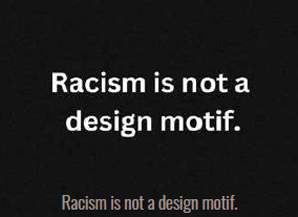 traveled to the Milan
Furniture Fair, but there my attention
was gripped by the controversy of a
racist exhibition called The Collector, by
Italian architect Massimo Adario.
Within Campo Base, curated by Federica
Sala, The Collector displayed glass
figurines produced in the 1920s, part
of Adario’s own collection. Intended
to be “ironic,” these decorative objects
depicted non-European peoples in
grotesque, racially charged caricatures.
Shocked, Anna Carnick, Jenny Nguyen,
and I returned to the U.S. and released a
joint statement on Instagram, alerting
the design community to the harmful
message The Collector exhibition was
spreading. ... Designers from across the
industry demanded an apology, which
Adario and Sala finally gave. ...
I arrived to the salone in Milan
believing that progress in the design
industry had been made, but I was
reminded how quickly the pendulum
swings from the “democratic”
left, where “all men” are supposedly
created equal, to the far right, where
fascism and racism seem to exist and
thrive undeterred. ...
Read full text:
traveled to the Milan
Furniture Fair, but there my attention
was gripped by the controversy of a
racist exhibition called The Collector, by
Italian architect Massimo Adario.
Within Campo Base, curated by Federica
Sala, The Collector displayed glass
figurines produced in the 1920s, part
of Adario’s own collection. Intended
to be “ironic,” these decorative objects
depicted non-European peoples in
grotesque, racially charged caricatures.
Shocked, Anna Carnick, Jenny Nguyen,
and I returned to the U.S. and released a
joint statement on Instagram, alerting
the design community to the harmful
message The Collector exhibition was
spreading. ... Designers from across the
industry demanded an apology, which
Adario and Sala finally gave. ...
I arrived to the salone in Milan
believing that progress in the design
industry had been made, but I was
reminded how quickly the pendulum
swings from the “democratic”
left, where “all men” are supposedly
created equal, to the far right, where
fascism and racism seem to exist and
thrive undeterred. ...
Read full text:
 Replacing a toilet block near the Park
Hyatt Tokyo hotel in downtown
Tokyo, the Fujimoto-designed structure
is the 17th toilet built in the city as part
of the Tokyo Toilet project. It includes
toilets designed by Pritzker Architecture
Prize winners Toyo Ito, Tadao Ando,
Fumihiko Maki and Shigeru Ban.
Fujimoto’s toilet block was designed
to resemble a large sink and incorporates
a communal hand-washing area. “One
could say that public toilets are a watering
place in the middle of a city, a spring
that supplies the town ... They are available
to various people who will use it for
different reasons in addition to using the
toilet, and I wanted to propose a space
for washing hands as a public watering
place” said the Japanese architect.
An open-air corridor separates the
all-white toilet block from the elliptical
basin that has four taps set at different
heights. “It is one vessel that is for everyone,” explained Fujimoto. "The
shape, with a large depression in the
middle, includes places for people of
various heights to wash their hands,
so that everyone from children to older
people can wash their hands within
this vessel, creating a small community
of people refreshing themselves and
conversing," he added. ...
Read full text
Replacing a toilet block near the Park
Hyatt Tokyo hotel in downtown
Tokyo, the Fujimoto-designed structure
is the 17th toilet built in the city as part
of the Tokyo Toilet project. It includes
toilets designed by Pritzker Architecture
Prize winners Toyo Ito, Tadao Ando,
Fumihiko Maki and Shigeru Ban.
Fujimoto’s toilet block was designed
to resemble a large sink and incorporates
a communal hand-washing area. “One
could say that public toilets are a watering
place in the middle of a city, a spring
that supplies the town ... They are available
to various people who will use it for
different reasons in addition to using the
toilet, and I wanted to propose a space
for washing hands as a public watering
place” said the Japanese architect.
An open-air corridor separates the
all-white toilet block from the elliptical
basin that has four taps set at different
heights. “It is one vessel that is for everyone,” explained Fujimoto. "The
shape, with a large depression in the
middle, includes places for people of
various heights to wash their hands,
so that everyone from children to older
people can wash their hands within
this vessel, creating a small community
of people refreshing themselves and
conversing," he added. ...
Read full text
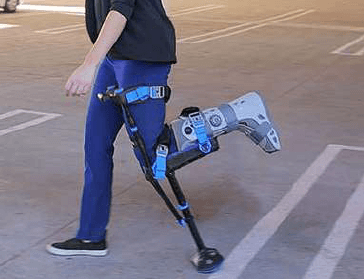 Unlike crutches and knee scooters,
the iWALK3.0 is a hands-free
mobility device. This means daily living
activities, such as shopping, working,
cooking and child care, are possible
with the iWALK3.0.
There’s many reasons many patients
prefer the iWALK. But being able to live
a life without putting it all on hold is
the biggest factor in keeping upbeat,
staving off depression and maintaining
wellbeing during recovery.
Exercise has a huge bearing on
wellbeing, and it’s simply not possible
with crutches. Of course, you’ll have to
postpone that marathon, but maintaining
an active lifestyle is still very much
possible, as many iWALK users have
demonstrated. Working out at the gym,
golfing, bowling, even hiking.
Also, iWALK 3.0 is a game changing
temporary lower leg prosthetic that
many below-knee amputees use daily.
...
Read full text
Unlike crutches and knee scooters,
the iWALK3.0 is a hands-free
mobility device. This means daily living
activities, such as shopping, working,
cooking and child care, are possible
with the iWALK3.0.
There’s many reasons many patients
prefer the iWALK. But being able to live
a life without putting it all on hold is
the biggest factor in keeping upbeat,
staving off depression and maintaining
wellbeing during recovery.
Exercise has a huge bearing on
wellbeing, and it’s simply not possible
with crutches. Of course, you’ll have to
postpone that marathon, but maintaining
an active lifestyle is still very much
possible, as many iWALK users have
demonstrated. Working out at the gym,
golfing, bowling, even hiking.
Also, iWALK 3.0 is a game changing
temporary lower leg prosthetic that
many below-knee amputees use daily.
...
Read full text
 While not quite as effective as the
standard treatment —estrogen
or estrogen coupled with progestin—
the new prescription drug, fezolinetant,
will be welcomed by those who
struggle with vasomotor symptoms
—episodes of intense heat along with
sweating and flushing— and won’t or
can’t take hormonal therapy, such as
breast cancer survivors. The pills will
be marketed as Veozah to treat moderate
to severe hot flashes, the most
common symptom caused by menopause
which can last for several years
or as long as a decade or more.
“I’m so excited about this FDA ruling,”
said Dr. Mary Rosser, an assistant
professor of women’s health at the
Columbia University ... “We’re talking
about something that is going to
be powerful.” Rosser said the drug will
be a “game-changer” for women who
don’t want to take hormone replacement
therapy or who have been treated
for hormone-sensitive cancers. That includes
patients like Diane Hoard, whose
hot flashes came on strong shortly after
she hit menopause.
Hoard remembers a day when the
temperature was hovering around 32
degrees. “I had sweat running down
my forehead. I was miserable” she told
NBC News. A prescription for hormone
therapy quieted the hot flashes. But a
year after she started taking the medication,
Hoard was diagnosed with stage
1 breast cancer and told she couldn’t
take hormones anymore. ...
Read full text:
While not quite as effective as the
standard treatment —estrogen
or estrogen coupled with progestin—
the new prescription drug, fezolinetant,
will be welcomed by those who
struggle with vasomotor symptoms
—episodes of intense heat along with
sweating and flushing— and won’t or
can’t take hormonal therapy, such as
breast cancer survivors. The pills will
be marketed as Veozah to treat moderate
to severe hot flashes, the most
common symptom caused by menopause
which can last for several years
or as long as a decade or more.
“I’m so excited about this FDA ruling,”
said Dr. Mary Rosser, an assistant
professor of women’s health at the
Columbia University ... “We’re talking
about something that is going to
be powerful.” Rosser said the drug will
be a “game-changer” for women who
don’t want to take hormone replacement
therapy or who have been treated
for hormone-sensitive cancers. That includes
patients like Diane Hoard, whose
hot flashes came on strong shortly after
she hit menopause.
Hoard remembers a day when the
temperature was hovering around 32
degrees. “I had sweat running down
my forehead. I was miserable” she told
NBC News. A prescription for hormone
therapy quieted the hot flashes. But a
year after she started taking the medication,
Hoard was diagnosed with stage
1 breast cancer and told she couldn’t
take hormones anymore. ...
Read full text:
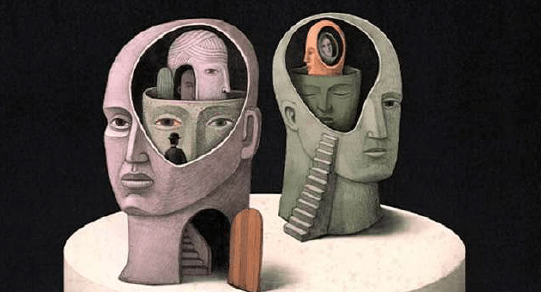 In 1985, the Estonian-Canadian psychologist
Endel Tulving, with the help
of his American student Daniel Schacter,
reported a case study of an amnesiac
patient named N.N., who had a severe
memory impairment. What interested
Tulving about the patient was that while
some aspects of the man’s memory were
impaired, other aspects seemed to work
just like anyone else’s.
N.N. was perfectly able to memorize a
series of random digits, what cognitive
psychologists call semantic memory —
the ability to recall facts, dates, names,
numbers, and other abstract information.
The problem was N.N.’s episodic
memory. He was unable to bring to
mind personal experiences from his life.
... The case of N.N. suggested to
Tulving that there was potentially a neural connection between memory and
imagination —that our ability to think
retrospectively about the past was in
a fundamental way connected to our
ability to think prospectively about the
future. Poet T.S. Eliot’s famous line,
“Time present and time past / Are both
perhaps present in time future,” had
entered the neurological age.
Misremembering and forgetting allow
for the cognitive flexibility required
by imagination. Taking this idea
a step further, Addis [a New Zealand
neuroscientist] and others suggested
that memory supports a “simulation”
system in the brain. Memory allows
us to imagine not just the future, but
to take alternative perspectives on
the present. ...
Read full text:
In 1985, the Estonian-Canadian psychologist
Endel Tulving, with the help
of his American student Daniel Schacter,
reported a case study of an amnesiac
patient named N.N., who had a severe
memory impairment. What interested
Tulving about the patient was that while
some aspects of the man’s memory were
impaired, other aspects seemed to work
just like anyone else’s.
N.N. was perfectly able to memorize a
series of random digits, what cognitive
psychologists call semantic memory —
the ability to recall facts, dates, names,
numbers, and other abstract information.
The problem was N.N.’s episodic
memory. He was unable to bring to
mind personal experiences from his life.
... The case of N.N. suggested to
Tulving that there was potentially a neural connection between memory and
imagination —that our ability to think
retrospectively about the past was in
a fundamental way connected to our
ability to think prospectively about the
future. Poet T.S. Eliot’s famous line,
“Time present and time past / Are both
perhaps present in time future,” had
entered the neurological age.
Misremembering and forgetting allow
for the cognitive flexibility required
by imagination. Taking this idea
a step further, Addis [a New Zealand
neuroscientist] and others suggested
that memory supports a “simulation”
system in the brain. Memory allows
us to imagine not just the future, but
to take alternative perspectives on
the present. ...
Read full text:
 Norway is moving forward with
plans to mine its continental
shelf to procure minerals critical
for renewable energy technologies.
However, some scientists, members of
civil society and even industry leaders
have raised concerns about Norway’s
proposal, arguing that deep-sea mining
in this part of the ocean could cause
widespread environmental harm.
The nation’s Ministry of Petroleum
and Energy has proposed opening
up a 329,000-square-kilometer
(127,000-square-mile) portion of the
Norwegian Sea to deep-sea mining,
an area nearly the size of Germany.
The region overlaps with many marine
areas previously flagged by Norwegian
research institutes and government
agencies as vulnerable or valuable. ...
According to the International
Energy Agency (IEA), today’s mineral
supply will fall short of what’s needed
to transform the energy sector, resulting
in a delayed and more expensive
transition to renewable technologies. A
recent study in Nature Communications
suggested that demand will escalate as
countries work to replace gas-combustion
vehicles with electric ones. For instance,
it suggested that if nations aim
to make all vehicles electric by 2050,
the global demand will increase by
7,513% for lithium, 5,426% for nickel,
2,838% for manganese and 2,684% for
cobalt. The study also pointed out that
most of these critical minerals were
available only in ...
Norway is moving forward with
plans to mine its continental
shelf to procure minerals critical
for renewable energy technologies.
However, some scientists, members of
civil society and even industry leaders
have raised concerns about Norway’s
proposal, arguing that deep-sea mining
in this part of the ocean could cause
widespread environmental harm.
The nation’s Ministry of Petroleum
and Energy has proposed opening
up a 329,000-square-kilometer
(127,000-square-mile) portion of the
Norwegian Sea to deep-sea mining,
an area nearly the size of Germany.
The region overlaps with many marine
areas previously flagged by Norwegian
research institutes and government
agencies as vulnerable or valuable. ...
According to the International
Energy Agency (IEA), today’s mineral
supply will fall short of what’s needed
to transform the energy sector, resulting
in a delayed and more expensive
transition to renewable technologies. A
recent study in Nature Communications
suggested that demand will escalate as
countries work to replace gas-combustion
vehicles with electric ones. For instance,
it suggested that if nations aim
to make all vehicles electric by 2050,
the global demand will increase by
7,513% for lithium, 5,426% for nickel,
2,838% for manganese and 2,684% for
cobalt. The study also pointed out that
most of these critical minerals were
available only in ...
 The Swedish pulp producer Renewcell
has just opened the world’s
first commercial-scale, textile-totextile
chemical recycling pulp mill,
after spending 10 years developing the
technology.
While mechanical textiles-to-textiles
recycling, which involves the manual
shredding of clothes and pulling them
apart into their fibres, has existed for
centuries, Renewcell is the first commercial
mill to use chemical recycling,
allowing it to increase quality and scale
production. With ambitions to recycle
the equivalent of more than 1.4 billion
T-shirts every year by 2030, the new
plant marks the beginning of a significant
shift in the fashion industry’s ability
to recycle used clothing at scale. “The
linear model of fashion consumption is not sustainable,” says Patrik Lundström.
“We can't deplete Earth’s natural
resources by pumping oil to make polyester,
cut down trees to make viscose or
grow cotton, and then use these fibres
just once in a linear value chain ending
in oceans, landfills or incinerators. We
need to make fashion circular.” ...
Each year, more than 100 billion
items of clothing are produced globally,
with 65% of these ending up in
landfill within 12 months. Landfill sites
release equal parts carbon dioxide and
methane ... The fashion industry is
estimated to be responsible for 8-10%
of global carbon emissions, according
to the UN. ... Just 1% of recycled
clothes are turned back into new garments.
...
Read full text:
The Swedish pulp producer Renewcell
has just opened the world’s
first commercial-scale, textile-totextile
chemical recycling pulp mill,
after spending 10 years developing the
technology.
While mechanical textiles-to-textiles
recycling, which involves the manual
shredding of clothes and pulling them
apart into their fibres, has existed for
centuries, Renewcell is the first commercial
mill to use chemical recycling,
allowing it to increase quality and scale
production. With ambitions to recycle
the equivalent of more than 1.4 billion
T-shirts every year by 2030, the new
plant marks the beginning of a significant
shift in the fashion industry’s ability
to recycle used clothing at scale. “The
linear model of fashion consumption is not sustainable,” says Patrik Lundström.
“We can't deplete Earth’s natural
resources by pumping oil to make polyester,
cut down trees to make viscose or
grow cotton, and then use these fibres
just once in a linear value chain ending
in oceans, landfills or incinerators. We
need to make fashion circular.” ...
Each year, more than 100 billion
items of clothing are produced globally,
with 65% of these ending up in
landfill within 12 months. Landfill sites
release equal parts carbon dioxide and
methane ... The fashion industry is
estimated to be responsible for 8-10%
of global carbon emissions, according
to the UN. ... Just 1% of recycled
clothes are turned back into new garments.
...
Read full text:
 The number of people around the
world who were forced to flee their
homes leapt by a fifth last year, as a
“perfect storm” of Russia’s assault on
Ukraine and climate disasters brought
displacement on an unprecedented
scale. By the end of 2022 the number
of internally displaced people (IDPs)
—those forced from their homes but
remaining within their country of residence—
reached 71 million, according
to figures published by the Norwegian
Refugee Council’s Internal Displacement
Monitoring Centre (IDMC), up
from 59.1 million in 2021.
The number of movements made by
people as they went in search of safety
and shelter was also unprecedented,
with the figure of 60.9m marking an
increase of 60% on the previous year.
About 17m of those movements were triggered by the war in Ukraine, where
an estimated 5.9 million people are
thought to have fled their homes, many
having to move repeatedly in an effort
to find resources or a place to stay, or
just a refuge from fighting. The report
warns that ... even those numbers
“should be considered conservative”.
The “monsoon on steroids” that hit
Pakistan last summer was also a leading
driver of displacement, with the flooding
that devastated much of the country
triggering more than 8m movements.
The report does not include the early
months of 2023 but indicates a dramatic
rise in displacement after the latest
outbreak of fighting in Sudan. ...
The number of people around the
world who were forced to flee their
homes leapt by a fifth last year, as a
“perfect storm” of Russia’s assault on
Ukraine and climate disasters brought
displacement on an unprecedented
scale. By the end of 2022 the number
of internally displaced people (IDPs)
—those forced from their homes but
remaining within their country of residence—
reached 71 million, according
to figures published by the Norwegian
Refugee Council’s Internal Displacement
Monitoring Centre (IDMC), up
from 59.1 million in 2021.
The number of movements made by
people as they went in search of safety
and shelter was also unprecedented,
with the figure of 60.9m marking an
increase of 60% on the previous year.
About 17m of those movements were triggered by the war in Ukraine, where
an estimated 5.9 million people are
thought to have fled their homes, many
having to move repeatedly in an effort
to find resources or a place to stay, or
just a refuge from fighting. The report
warns that ... even those numbers
“should be considered conservative”.
The “monsoon on steroids” that hit
Pakistan last summer was also a leading
driver of displacement, with the flooding
that devastated much of the country
triggering more than 8m movements.
The report does not include the early
months of 2023 but indicates a dramatic
rise in displacement after the latest
outbreak of fighting in Sudan. ...
 Nadia Mattiazzo remembers going to
her regular café, back in 2016, and
trying to buy a cup of coffee. There was
no way she could pay for it. Mattiazzo,
who is blind, said the café had installed
a new eftpos machine [electronic funds
transfer at point of sale] which had a
touchscreen. With no fixed buttons to
help her orientate the location of the digits,
she could not enter her PIN.
Mattiazzo teamed up with former
disability discrimination commissioner
Graeme Innes to sue the Commonwealth
Bank, taking their landmark case to the
Federal Court. In January 2019, the bank
agreed to settle the case and improve
their eftpos touchscreen terminals to
enhance accessibility for people who are
blind or have low vision.
But now, the rapid proliferation of
touchscreens means the problem is worse than ever, according to disability
advocates. “They’re everywhere. You go
to the supermarket and the self-service
checkouts are touchscreen. Where are
the buttons? ... With fewer and fewer
checkouts at supermarkets manned
by staff, it is becoming a more stressful
experience. I use online shopping a
lot, but if I go to the shops I just have
to hope somebody is available to go
through the items with me and put
them through the checkout,” Mattiazzo
said. ... Then there are other items with
touchscreens, like vending machines
and lifts. Last week, Mario Bonds
shared a video to TikTok of himself being
stuck in a lift for 10 minutes at ...
Nadia Mattiazzo remembers going to
her regular café, back in 2016, and
trying to buy a cup of coffee. There was
no way she could pay for it. Mattiazzo,
who is blind, said the café had installed
a new eftpos machine [electronic funds
transfer at point of sale] which had a
touchscreen. With no fixed buttons to
help her orientate the location of the digits,
she could not enter her PIN.
Mattiazzo teamed up with former
disability discrimination commissioner
Graeme Innes to sue the Commonwealth
Bank, taking their landmark case to the
Federal Court. In January 2019, the bank
agreed to settle the case and improve
their eftpos touchscreen terminals to
enhance accessibility for people who are
blind or have low vision.
But now, the rapid proliferation of
touchscreens means the problem is worse than ever, according to disability
advocates. “They’re everywhere. You go
to the supermarket and the self-service
checkouts are touchscreen. Where are
the buttons? ... With fewer and fewer
checkouts at supermarkets manned
by staff, it is becoming a more stressful
experience. I use online shopping a
lot, but if I go to the shops I just have
to hope somebody is available to go
through the items with me and put
them through the checkout,” Mattiazzo
said. ... Then there are other items with
touchscreens, like vending machines
and lifts. Last week, Mario Bonds
shared a video to TikTok of himself being
stuck in a lift for 10 minutes at ...
 Sweden has issued licences to hunters
to kill a total of 201 lynx, weeks
after dozens of wolves were killed in
the country’s biggest wolf cull in modern
times. The number of licences to
kill lynx throughout March, issued by
Sweden’s country administrations, is
more than double the number in recent
years. The planned cull is out of all
proportion to any danger to livestock
or people, say wildlife conservationists
and activists, who are asking the EU to
take action against Sweden for breaching
environmental law.
“This is a trophy hunt, just like going
to Africa to hunt lions,” said Magnus
Orrebrant, the head of Svenska Rovdjursföreningen,
an animal rights advocacy
group that has started a petition
calling for the trophy hunting of lynx to be stopped. “Hundreds of foreign
hunters come to Sweden for lynx hunting
because they think it is exciting.”
Conservationists warned last month
that the lynx population in Europe could
collapse unless immediate efforts are
made to protect the animals. Tests on
the remaining cats in France show that
their genetic diversity is so low they will
become locally extinct within the next
30 years without intervention.
There are around 1,450 lynx spread
across Sweden, about 300 fewer than 10
years ago. Naturvårdsverket, the Swedish
environmental protection agency,
argues that the country needs only 870
animals to maintain a healthy population.
...
Sweden has issued licences to hunters
to kill a total of 201 lynx, weeks
after dozens of wolves were killed in
the country’s biggest wolf cull in modern
times. The number of licences to
kill lynx throughout March, issued by
Sweden’s country administrations, is
more than double the number in recent
years. The planned cull is out of all
proportion to any danger to livestock
or people, say wildlife conservationists
and activists, who are asking the EU to
take action against Sweden for breaching
environmental law.
“This is a trophy hunt, just like going
to Africa to hunt lions,” said Magnus
Orrebrant, the head of Svenska Rovdjursföreningen,
an animal rights advocacy
group that has started a petition
calling for the trophy hunting of lynx to be stopped. “Hundreds of foreign
hunters come to Sweden for lynx hunting
because they think it is exciting.”
Conservationists warned last month
that the lynx population in Europe could
collapse unless immediate efforts are
made to protect the animals. Tests on
the remaining cats in France show that
their genetic diversity is so low they will
become locally extinct within the next
30 years without intervention.
There are around 1,450 lynx spread
across Sweden, about 300 fewer than 10
years ago. Naturvårdsverket, the Swedish
environmental protection agency,
argues that the country needs only 870
animals to maintain a healthy population.
...
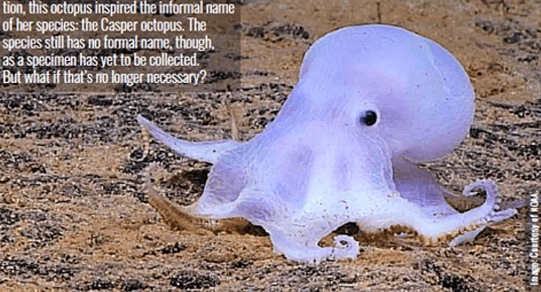 On Feb. 27, 2016, the Deep Discoverer,
an undersea exploration vehicle
operated remotely by researchers,
found something new: a pale octopus
at the bottom of the ocean off the Hawaiian
archipelago, more than two and
a half miles below the ocean surface.
... “It didn’t match the descriptions of
anything that I was familiar with,” says
Michael Vecchione, a zoologist with
the National Oceanic and Atmospheric
Administration, who was watching the
live video feed that day. ...
The animal’s ghost like appearance
gave rise to a charming if obvious
nickname: “Casper octopus.” But seven
years later the species still doesn’t have
a formal scientific name.
Describing a new species has traditionally
required a physical specimen, known as a holotype, that can be
preserved in a museum and referenced
in perpetuity ... But no specimen of the
Casper octopus has yet been collected, a
fairly common circumstance for deepsea
creatures glimpsed on research
video feeds. ...
“There’s a whole range of animals
I can tell you that we’ve seen once,”
says Alan Jamieson, a marine biologist.
When they encounter a solitary, neverseen-
before organism there, they don’t
know how old or rare it might be, and
are therefore hesitant to collect it. “I
don’t see the point in doing something
irresponsible just for the sake of
doing it by the rules,” says Jamieson.
“The rules have been written for other
environments.” ...
On Feb. 27, 2016, the Deep Discoverer,
an undersea exploration vehicle
operated remotely by researchers,
found something new: a pale octopus
at the bottom of the ocean off the Hawaiian
archipelago, more than two and
a half miles below the ocean surface.
... “It didn’t match the descriptions of
anything that I was familiar with,” says
Michael Vecchione, a zoologist with
the National Oceanic and Atmospheric
Administration, who was watching the
live video feed that day. ...
The animal’s ghost like appearance
gave rise to a charming if obvious
nickname: “Casper octopus.” But seven
years later the species still doesn’t have
a formal scientific name.
Describing a new species has traditionally
required a physical specimen, known as a holotype, that can be
preserved in a museum and referenced
in perpetuity ... But no specimen of the
Casper octopus has yet been collected, a
fairly common circumstance for deepsea
creatures glimpsed on research
video feeds. ...
“There’s a whole range of animals
I can tell you that we’ve seen once,”
says Alan Jamieson, a marine biologist.
When they encounter a solitary, neverseen-
before organism there, they don’t
know how old or rare it might be, and
are therefore hesitant to collect it. “I
don’t see the point in doing something
irresponsible just for the sake of
doing it by the rules,” says Jamieson.
“The rules have been written for other
environments.” ...

 Designed to provide a challenge and
engage your entire body with just the
right amount of motion to keep you
active. As you get better at balancing,
add more air to the nubby rubber cushion
(no pump required).
www.uncommongoods.com
Designed to provide a challenge and
engage your entire body with just the
right amount of motion to keep you
active. As you get better at balancing,
add more air to the nubby rubber cushion
(no pump required).
www.uncommongoods.com
 An innovative prosthetic leg,
designed for amputee women —not only
a medical device but a fashion accessory.
After the Outfeet prosthetic is fitted by the
prosthetist, Outfeet online store will be the
place to buy covers suiting the woman’s own
personal style. www.aviyaserfaty.com
An innovative prosthetic leg,
designed for amputee women —not only
a medical device but a fashion accessory.
After the Outfeet prosthetic is fitted by the
prosthetist, Outfeet online store will be the
place to buy covers suiting the woman’s own
personal style. www.aviyaserfaty.com

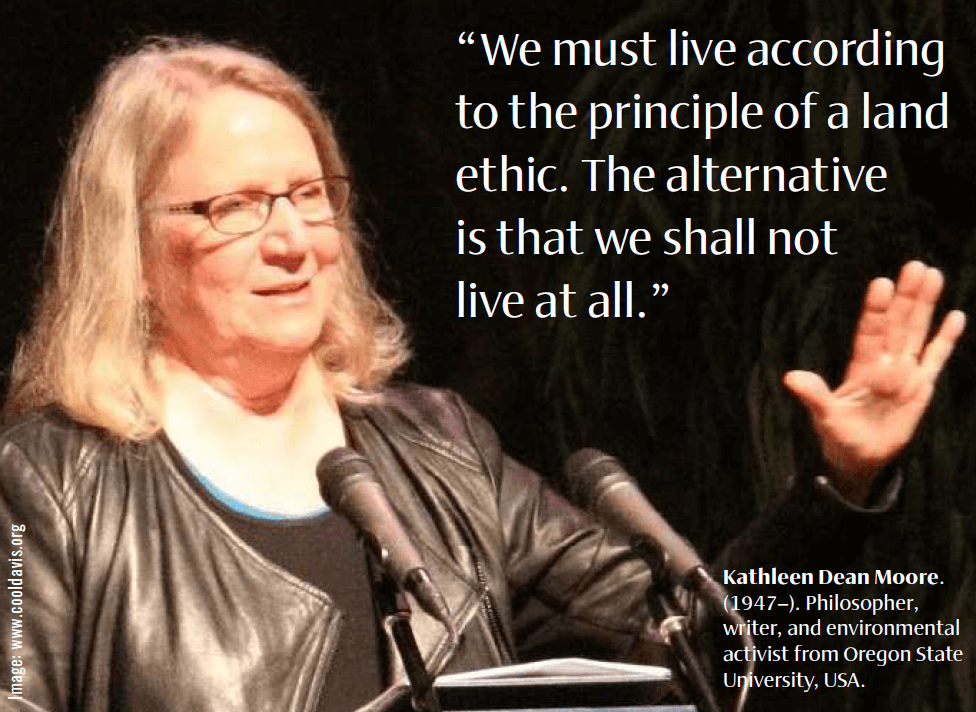 “We must live according
to the principle of a land
ethic. The alternative
is that we shall not
live at all.”
“We must live according
to the principle of a land
ethic. The alternative
is that we shall not
live at all.”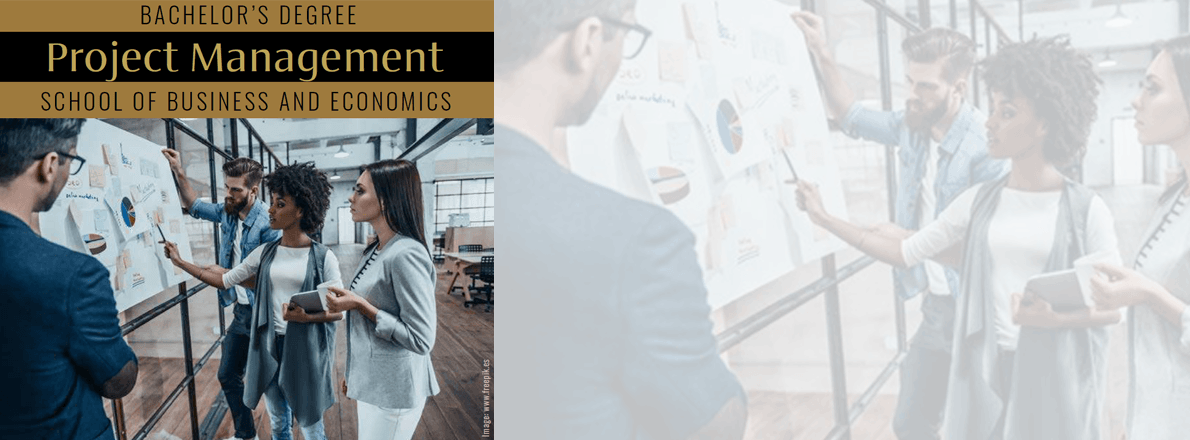 The Bachelor of Project Management
(BA) program objective is to help
students develop the knowledge, skills,
and critical appreciation of innovation
and project management needed to
achieve a successful career in projectbased
organizations. The Bachelor of
Project Management program is offered
online via distance learning. After
evaluating both academic record and
life experience, AIU staff working in
conjunction with Faculty and Academic
Advisors will assist students in setting
up a custom-made program, designed
on an individual basis. This flexibility
to meet student needs is seldom found
in other distance learning programs.
Our online program does not require
all students to take the same subjects/
courses, use the same books, or
learning materials. Instead, the online
Bachelor of Project Management curriculum
is designed individually by
the student and academic advisor. It
specifically addresses strengths and
weaknesses with respect to market opportunities
in the student’s major and
intended field of work. Understanding
that industry and geographic factors
should influence the content of the
curriculum instead of a standardized
one-fits-all design is the hallmark of
AIU’s unique approach to adult education.
This philosophy addresses the
dynamic and constantly changing environment
of working professionals by
helping adult students in reaching their
professional and personal goals within
the scope of the degree program..
The Bachelor of Project Management
(BA) program objective is to help
students develop the knowledge, skills,
and critical appreciation of innovation
and project management needed to
achieve a successful career in projectbased
organizations. The Bachelor of
Project Management program is offered
online via distance learning. After
evaluating both academic record and
life experience, AIU staff working in
conjunction with Faculty and Academic
Advisors will assist students in setting
up a custom-made program, designed
on an individual basis. This flexibility
to meet student needs is seldom found
in other distance learning programs.
Our online program does not require
all students to take the same subjects/
courses, use the same books, or
learning materials. Instead, the online
Bachelor of Project Management curriculum
is designed individually by
the student and academic advisor. It
specifically addresses strengths and
weaknesses with respect to market opportunities
in the student’s major and
intended field of work. Understanding
that industry and geographic factors
should influence the content of the
curriculum instead of a standardized
one-fits-all design is the hallmark of
AIU’s unique approach to adult education.
This philosophy addresses the
dynamic and constantly changing environment
of working professionals by
helping adult students in reaching their
professional and personal goals within
the scope of the degree program..
 Atlantic International University is accredited by the Accreditation Service for International
Schools, Colleges and Universities (ASIC). ASIC Accreditation is an internationally
renowned quality standard for colleges and universities. Visit ASIC’s Directory of Accredited
Colleges and Universities. ASIC is a member of CHEA International Quality Group
(CIQG) in the USA, an approved accreditation body by the Ministerial Department of the Home Office
in the UK, and is listed in the International Directory of the Council for Higher Education Accreditation
(CHEA). The University is based in the United States and was established by corporate charter in 1998.
Atlantic International University is accredited by the Accreditation Service for International
Schools, Colleges and Universities (ASIC). ASIC Accreditation is an internationally
renowned quality standard for colleges and universities. Visit ASIC’s Directory of Accredited
Colleges and Universities. ASIC is a member of CHEA International Quality Group
(CIQG) in the USA, an approved accreditation body by the Ministerial Department of the Home Office
in the UK, and is listed in the International Directory of the Council for Higher Education Accreditation
(CHEA). The University is based in the United States and was established by corporate charter in 1998.
 In some cases, accredited colleges
may not accept for transfer courses and degrees
completed at unaccredited colleges, and some
employers may require an accredited degree as
a basis for eligibility for employment. Potential
students should consider how the above may affect
their interests, AIU respects the unique rules and
regulations of each country and does not seek to
influence the respective authorities. In the event
that a prospective student wishes to carry out any
government review or process in regards to his
university degree, we recommend that the requirements
of such are explored in detail with the relevant
authorities by the prospective student as the
university does not intervene in such processes.
AIU students can be found in over 180 countries,
they actively participate and volunteer
in their communities as part of their academic
program and have allocated thousands of service
hours to diverse causes and initiatives. AIU
programs follow the standards commonly used by
colleges and universities in the United States with
regards to the following: academic program
structure, degree issued, transcript, and
other graduation documents.
AIU graduation documents can include
an apostille and authentication from the
US Department of State to facilitate their
use internationally.
In some cases, accredited colleges
may not accept for transfer courses and degrees
completed at unaccredited colleges, and some
employers may require an accredited degree as
a basis for eligibility for employment. Potential
students should consider how the above may affect
their interests, AIU respects the unique rules and
regulations of each country and does not seek to
influence the respective authorities. In the event
that a prospective student wishes to carry out any
government review or process in regards to his
university degree, we recommend that the requirements
of such are explored in detail with the relevant
authorities by the prospective student as the
university does not intervene in such processes.
AIU students can be found in over 180 countries,
they actively participate and volunteer
in their communities as part of their academic
program and have allocated thousands of service
hours to diverse causes and initiatives. AIU
programs follow the standards commonly used by
colleges and universities in the United States with
regards to the following: academic program
structure, degree issued, transcript, and
other graduation documents.
AIU graduation documents can include
an apostille and authentication from the
US Department of State to facilitate their
use internationally.
| Dr. Franklin Valcin Presi den t/Academic Dean |
Dr. José Mercado Chief Executive Officer Chairman of the Board of Trustees |
Ricardo González, PhD Provost |
| Dr. Ricardo Gonzalez Chief Operation Officer and MKT Director |
Linda Collazo Logistics Coordinator |
AIU Tutors Coordinators: Deborah Rodriguez Amiakhor Ejaeta Amanda Gutierrez William Mora Miriam James Admissions Coordinators: Amalia Aldrett Sandra Garcia Junko Shimizu Veronica Amuz Alba Ochoa Jenis Garcia Judith Brown Chris Soto René Cordón Dr. Anderas Rissler Academic Coordinators: Dr. Adesida Oluwafemi Dr. Emmanuel Gbagu Dr. Lucia Gorea Dr. Edgar Colon Dr. Mario Rios Freddy Frejus Dr. Nilani Ljunggren De Silva Dr. Scott Wilson Dr. Mohammad Shaidul Islam |
| Dr. Miriam Garibaldi Vice provost for Research |
Carolina Valdes Human Resource Coordinator |
|
| Dr. Ofelia Miller Director of AIU |
Carlos Aponte Teleco mmunications Coordinator |
|
| Clara Margalef Director of Special Projects of AIU |
David Jung Corporate/Legal Counsel |
|
| Juan Pablo Moreno Director of Operations |
Bruce Kim Advisor/Consultant |
|
| Paula Viera Director of Intelligence Systems |
Thomas Kim Corporate/ Accounting Counsel |
|
| Felipe Gomez Design Director / IT Supervisor |
Maricela Esparza Administrative Coordinator |
|
| Kevin Moll Web Designer |
Chris Benjamin IT and Hosting Support |
|
| Daritza Ysla IT Coordinator |
Maria Pastrana Accounting Coordinator |
|
| Daritza Ysla IT Coordinator |
Roberto Aldrett Communications Coordinator |
|
| Nadeem Awan Chief Programming Officer |
Giovanni Castillo IT Support |
|
| Dr. Edward Lambert Academic Director |
Antonella Fonseca Quality Control & Data Analysis |
|
| Dr. Ariadna Romero Advisor Coordinator |
Adrián Varela Graphic Design |
|
| Jhanzaib Awan Senior Programmer |
Vanesa D’Angelo Content Writer |
|
| Leonardo Salas Human Resource Manager |
Jaime Rotlewicz Dean of Admissions |
|
| Benjamin Joseph IT and Technology Support |
Michael Phillips Registrar’s Office |
|
| Rosie Perez Finance Coordinator |
||
 The School of Business and Economics
allows aspiring and practicing
professionals, managers, and entrepreneurs
in the private and public sectors
to complete a self paced distance
learning degree program of the highest
academic standard.
The ultimate goal is to empower
learners and help them take advantage
of the enormous array of resources
from the world environment in order
to eliminate the current continuum of
poverty and limitations.
Degree programs are designed for
those students whose professional experience has been in business,
marketing, administration, economics,
finance and management.
The School of Business and Economics
allows aspiring and practicing
professionals, managers, and entrepreneurs
in the private and public sectors
to complete a self paced distance
learning degree program of the highest
academic standard.
The ultimate goal is to empower
learners and help them take advantage
of the enormous array of resources
from the world environment in order
to eliminate the current continuum of
poverty and limitations.
Degree programs are designed for
those students whose professional experience has been in business,
marketing, administration, economics,
finance and management.
 The School of Social and Human Studies
is focused on to the development of
studies which instill a core commitment
to building a society based on social and
economic justice and enhancing opportunities
for human well being.
The founding principles lie on the
basic right of education as outlined
in the Declaration of Human Rights.
We instill in our students a sense of
confidence and self reliance in their
ability to access the vast opportunities
available through information channels,
the world wide web, private, public,
nonprofit, and nongovernmental organizations in an ever expanding
global community.
Degree programs are aimed towards
those whose professional life has been
related to social and human behavior,
with the arts, or with cultural studies.
The School of Social and Human Studies
is focused on to the development of
studies which instill a core commitment
to building a society based on social and
economic justice and enhancing opportunities
for human well being.
The founding principles lie on the
basic right of education as outlined
in the Declaration of Human Rights.
We instill in our students a sense of
confidence and self reliance in their
ability to access the vast opportunities
available through information channels,
the world wide web, private, public,
nonprofit, and nongovernmental organizations in an ever expanding
global community.
Degree programs are aimed towards
those whose professional life has been
related to social and human behavior,
with the arts, or with cultural studies.
 The School of Science and Engineering
seeks to provide dynamic, integrated,
and challenging degree programs
designed for those whose experience
is in industrial research, scientific production,
engineering and the general
sciences. Our system for research and
education will keep us apace with the
twenty-first century reach scientific
advance in an environmentally and
ecologically responsible manner to allow
for the sustainability of the human
population. We will foster among our
students a demand for ethical behavior,
an appreciation for diversity, an understanding
of scientific investigation, knowledge of design innovation, a
critical appreciation for the importance
of technology and technological change
for the advancement of humanity.
The School of Science and Engineering
seeks to provide dynamic, integrated,
and challenging degree programs
designed for those whose experience
is in industrial research, scientific production,
engineering and the general
sciences. Our system for research and
education will keep us apace with the
twenty-first century reach scientific
advance in an environmentally and
ecologically responsible manner to allow
for the sustainability of the human
population. We will foster among our
students a demand for ethical behavior,
an appreciation for diversity, an understanding
of scientific investigation, knowledge of design innovation, a
critical appreciation for the importance
of technology and technological change
for the advancement of humanity.
 With access to a global catalog created and maintained collectively by more than
9,000 participating institutions, AIU students have secured excellent research
tools for their study programs.
With access to a global catalog created and maintained collectively by more than
9,000 participating institutions, AIU students have secured excellent research
tools for their study programs.